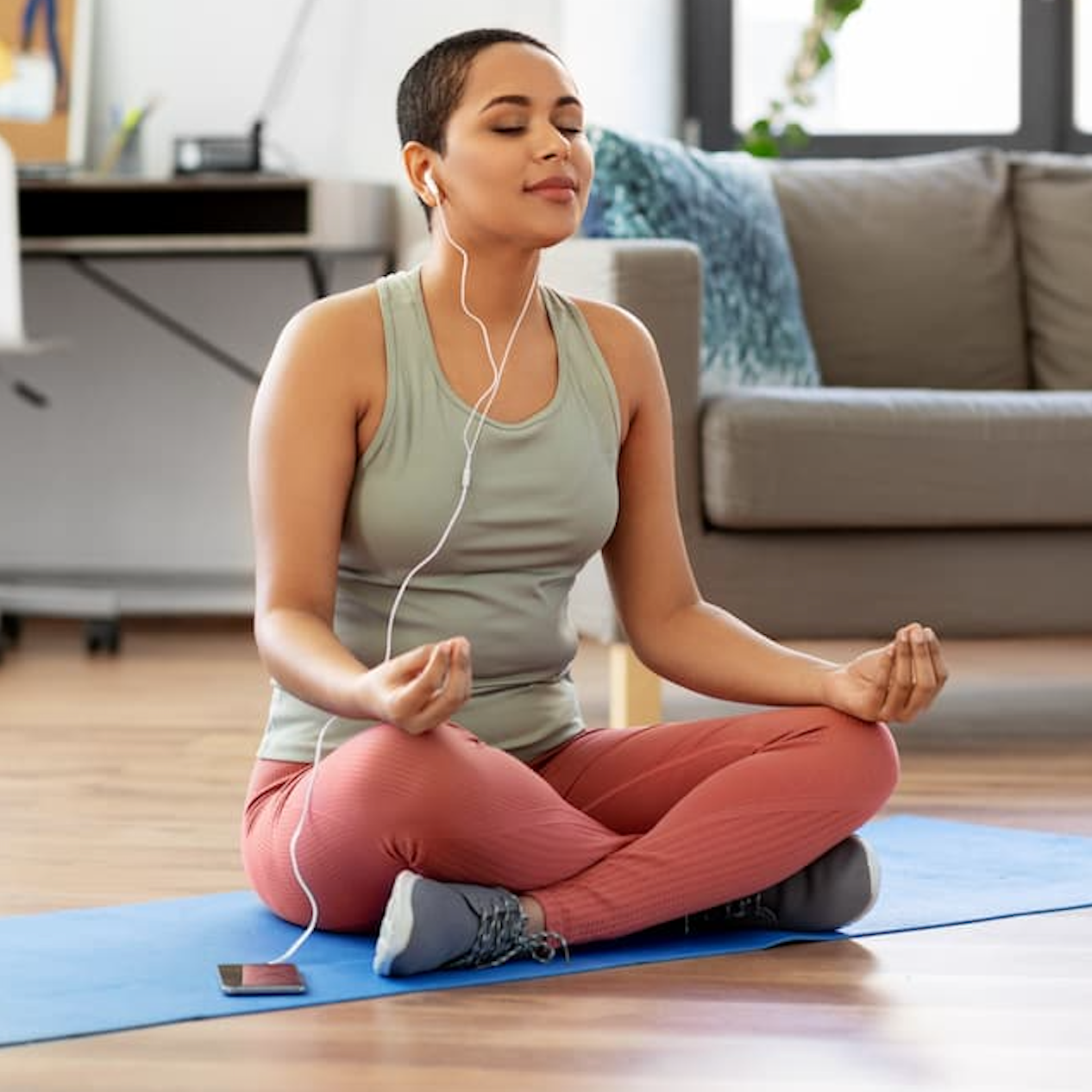What Science Says About Meditation Apps and Mental Health
Research suggests meditation apps can reduce anxiety and depression, though long-term engagement remains a challenge.
By
Lana Pine
| Published on August 23, 2025
4 min read
Credit:Adobe Stock/Syda Productions

Meditation apps have become extremely popular, making it easier for millions of people to learn and practice mindfulness on their phones. In a review paper published in APA PsycNet, investigators say that research is still catching up to how widely these apps are being used, but studies so far show that they can provide small but consistent improvements in mental health — especially by lowering anxiety and depression.
A team of experts led by J. David Creswell, Ph.D., a health psychologist at Carnegie Mellon University, think this might happen because apps can help reduce negative thought patterns and boost mindfulness skills, and some early research even points to benefits like lower blood pressure.
“People are suffering right now,” said Creswell. “There are just unbelievably high levels of stress and loneliness in the world, and these tools have tremendous potential to help.”
For many years, people interested in meditation usually turned to in-person programs like Transcendental Meditation (TM), the 8-week Mindfulness-Based Stress Reduction (MBSR) course or Mindfulness-Based Cognitive Therapy (MBCT). These programs have reached hundreds of thousands of people worldwide over the past few decades. But today, meditation apps are making a much bigger impact. The top 10 meditation apps have been downloaded more than 300 million times — just in the past year alone, according to data.ai. Compared with traditional programs, far more people are now turning to digital tools to learn and practice meditation.
“Meditation apps have played a central role in the rise of digital mental health apps,” noted investigators.
Research shows that meditation apps may do more than just reduce stress — they can also help people feel less lonely and more connected to others. In fact, one study found that most of the stress relief from using a meditation app (about 62%) was linked to reduced feelings of loneliness. Other trials have shown similar results, with people reporting even more compassionate behavior toward others. This suggests that even without the face-to-face support of traditional meditation groups, meditation apps can still promote emotional well-being and stronger social connections.
Compared with in-person mindfulness programs, apps are shorter (averaging 10 to 21 minutes), more flexible and widely available, but they often lack personal support and struggle with keeping people engaged long term. In fact, only 4.7% of initial users still use the app after 30 days, with an estimated average of lifetime use of one to four total sessions.
While early studies show that these apps can help with issues like stress, anxiety and negative thinking, researchers say much more work is needed. For example, studies should directly compare meditation apps with traditional in-person programs to see how they stack up, and they should also include people from diverse backgrounds.
Creswell and his team are also calling for stronger rules around privacy, safety and the use of artificial intelligence in these apps, so patients can feel confident their data is secure.
In the future, investigators believe meditation apps may even become U.S. Food and Drug Administration (FDA)-approved and covered by insurance, but for now, research should focus on making sure they are safe, effective and accessible to everyone.
Experts believe combining apps with human guidance and using smart technology to deliver help at just the right time could make them even more effective.
“I don’t think there is ever going to be a complete replacement for a good, in-person meditation group or teacher,” said Creswell. “But I think meditation apps are a great first step for anyone who wants to dip their toes in and start training up their mindfulness skills. The initial studies show that these meditation apps help with symptom relief and even reduce stress biomarkers.”

